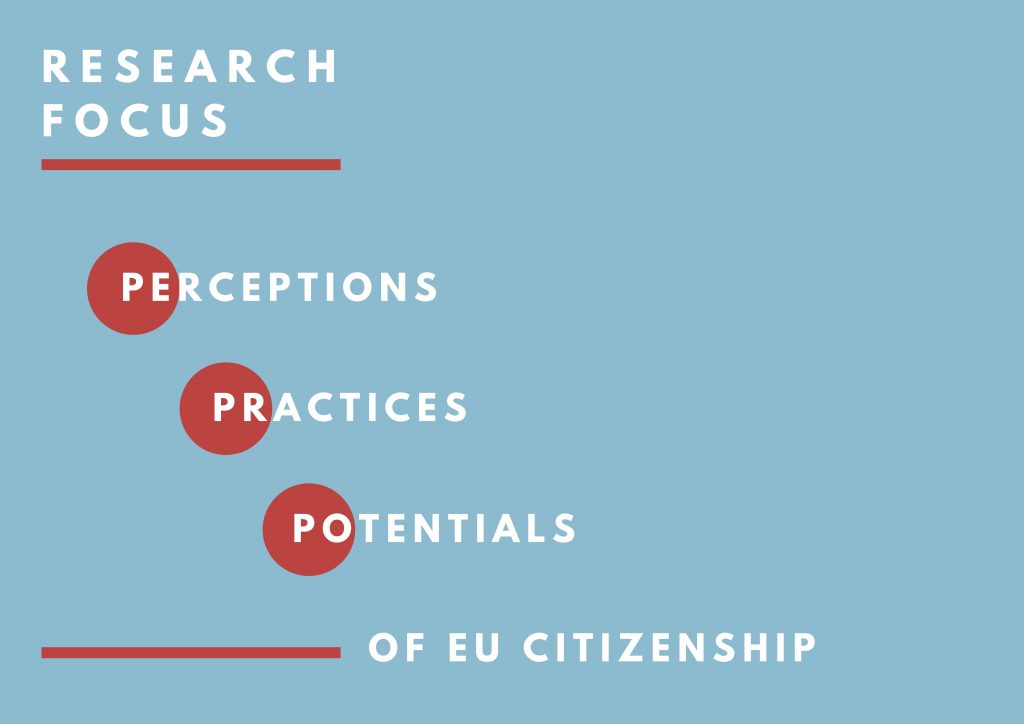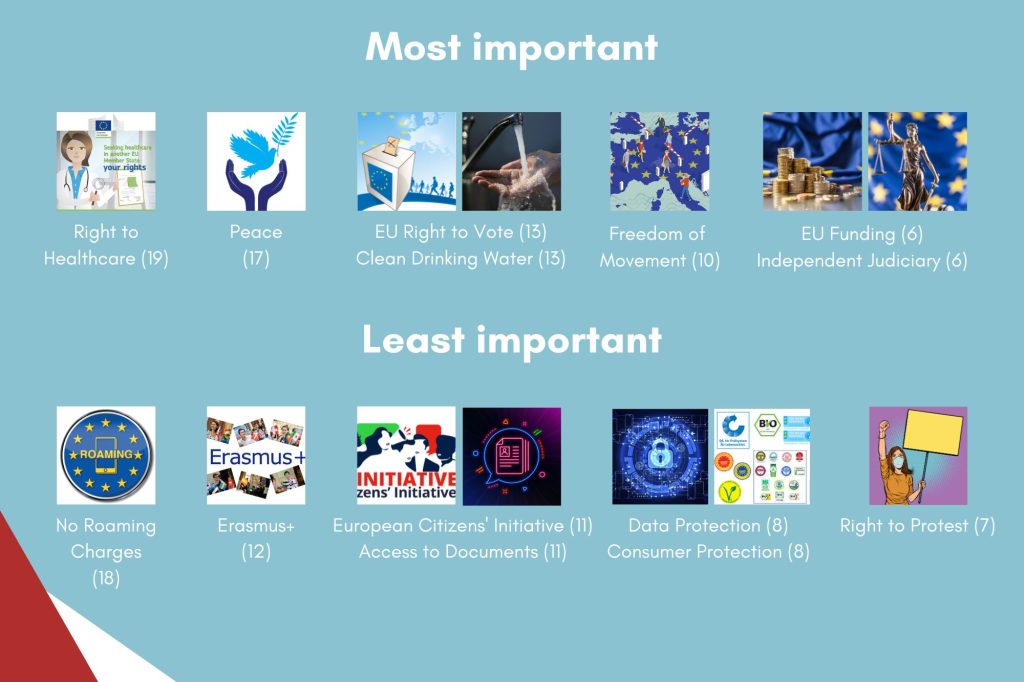Research

The JMCoE aims to fill gaps in EU research: With a focus on young people in rural areas of the EU, it seeks to explore mechanisms of support for the EU in the periphery by using an interdisciplinary approach.
Renowned scholars from political science, sociology, contemporary history and ethnology at Leipzig University and the Leibniz Institute for the History and Culture of Eastern Europe (GWZO) bundle and connect their research on fundamental and current challenges of EU citizenship in three dimensions: perceptions of EU citizenship, practices of EU citizenship and potentials of EU citizenship.

Regions
[The map is currently only available in German. A map in English will follow soon.]
The map shows where we conducted group discussions and individual interviews. We are particularly interested in views of young people in regions with
- lower gross domestic product in purchasing power standards per capita,
- lower employment rate,
- higher average age,
- higher time requirements to reach the nearest regional center, and
- poorer accessibility to various services of general interest (e.g., supermarkets, gas stations, and pharmacies).
The map shows where counties (so-called NUTS 3 units) score poorly or well on these metrics compared to national averages. For our group discussions, we selected two cities each with a population of 20,000 to 30,000 in the regions with the highest national scores. Where there were not two cities of this size, we included a nearby city from a neighboring county.
For the interviews with individuals conducting youth dialogues on European issues, we selected projects that were awarded EU funding under Erasmus+ in 2019. Since the number of such youth dialogue projects in our main regions of interest was very limited, and two promoters did not respond to our invitation for an interview, we also selected projects outside regions that fit the above criteria, and even projects in Latvia and Eastern Germany. These are also post-socialist areas and they have similar frameworks for EU work.
Health and peace – what is important to young people
In the 20 group discussions, the young people discussed which of 15 EU rights, policies and measures that we presented to them they found particularly important and which unimportant. This is the outcome:

The number in brackets indicates how many groups of young people argued for important or unimportant in each case.
Learn more:
Lorenz, A. and Anders, Lisa H. (eds.) 2023: EU Citizenship Beyond Urban Centres. Perceptions and Practices of Young People in East Central European Peripheral Areas. Berlin: Springer. (Open Access)
Bibliography
In order to provide an overview of the current state of research on the topic of rural peripheries in East-Central Europe, we have compiled a bibliography, which is constantly being updated.
